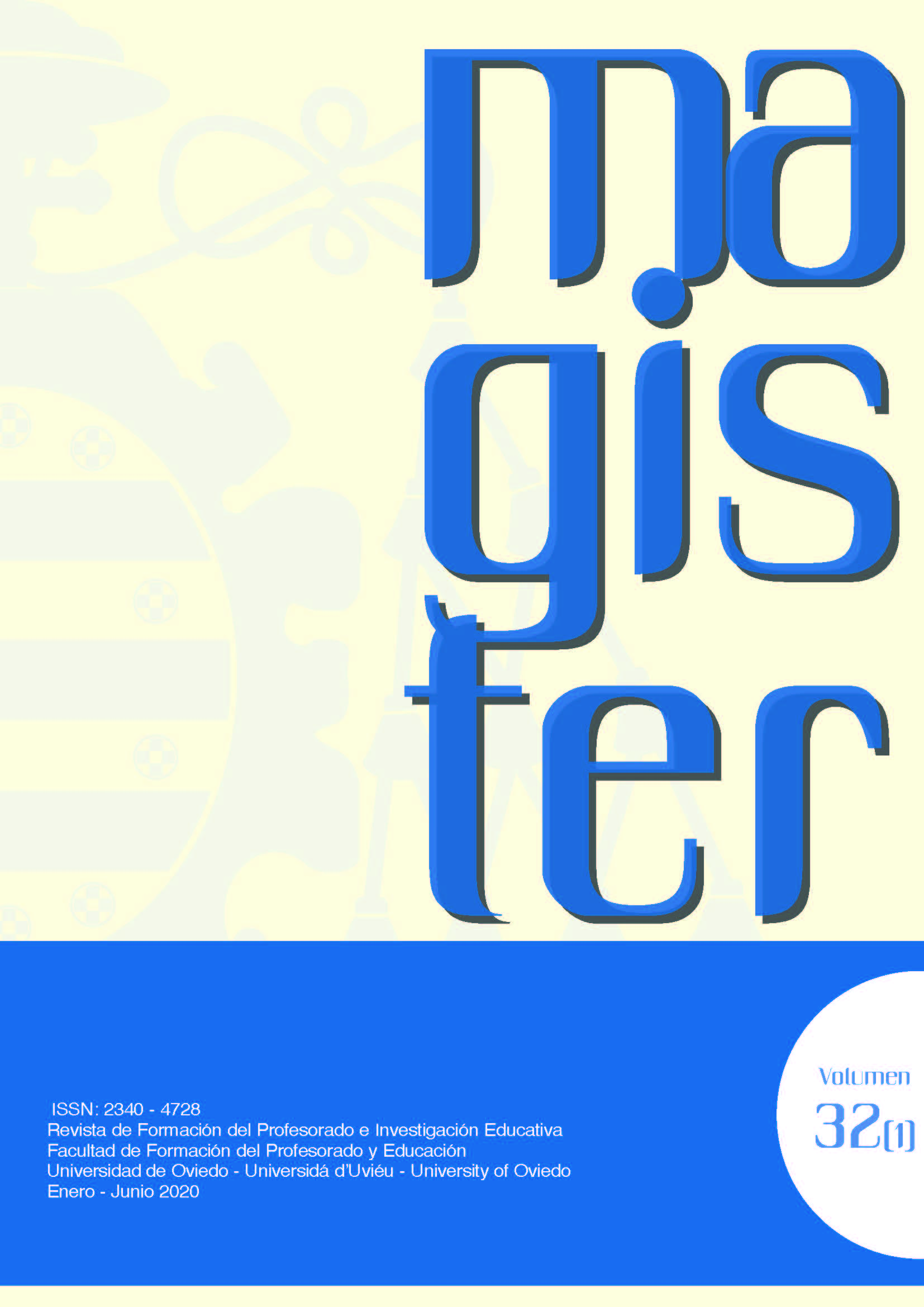Abstract
This study aims to introduce the design and application of a Final Degree Project tutoring project where formative and cyclical feedback is subject to evaluation by students and lecturers. A total of nine lecturers from the Faculty of Education at the University of the Balearic Islands and 58 students on the Degree in Early Childhood and Primary Education took part. Two instruments were used: a questionnaire for lecturers and students to collect information; and content analysis for the online feedback provided by tutors. Among the results, there is a tendency to give a type of feedback focused on the task, more than on the process of self-regulation.References
Adcroft, A. (2011). The mythology of feedback. Higher Education Research & Development, 30(4), 405-419.
Allal, L. y López, L.M. (2005). Formative assessment of learning: A review of publications in French. En OECD (Ed.), Formative assessment: Improving learning in secondary classrooms (pp. 241264), France: OECD Publishing
Álvarez, M. y Pascual, M.M. (2012). Propuesta de evaluación del Trabajo Fin de Grado en Derecho. Aula Abierta, 40(1), 85-102
Boud, D. y Molloy, E. (2015). El feedback en Educación Superior y profesional. Comprenderlo y hacerlo bien. Madrid: Narcea
Boud, D. (2015). Feedback: Ensuring that it leads to enhanced learning. The Clinical Teacher, 12, 3-7. doi: 10.1111/tct.12345
Cano, E. (2014). Análisis de las investigaciones sobre feedback: Aportes para su mejora en el marco del EEES. Bordón. Revista de Pedagogía, 66(4), 9-24.
Carless, D., Salter, D., Yang, M. y Lam, J. (2011). Developing sustainable feedback practices. Studies in Higher Education, 36(4), 395-407. doi: 10.1080/03075071003642449
Crisp, B. (2007). Is it worth the effort? How feedback influences students’ subsequent submission of assessable work. Assessment & Evaluation in Higher Education, 32(5), 571-581. doi: 10.1080/02602930601116912
Doan, L. (2013). Is Feedback a Waste of Time? The Students’ Perspective, 1(2), doi: 10.14297/jpaap.v1i2.69
Evans, C. (2013). Making Sense of Assessment Feedback in Higher Education. Review of Educational Research, 83(1), 70-120. doi: 10.3102/0034654312474350
García-Jiménez, E. (2015). La evaluación del aprendizaje: de la retroalimentación a la autorregulación. El papel de las tecnologías. RELIEVE, 21(2), 1-24.
García-Sanpedro, M.J. (2012). Feedback y feedforward: estrategias de mejora para la evaluación continua. A: “Jornada d’innovació docent UPC: presentació de resultats dels projectes de millora de la docència”, 351-359.
Garello, M. V. (2013). Autorregulación del aprendizaje, feedback y transferencia de conocimiento. Investigación de diseño con estudiantes universitarios. REDIE, Revista Electrónica de Investigación Educativa, 15(2), 131-147.
Ion, G., Barrera-Corominas, A. y Tomàs-Folch, M. (2016). Written peer-feedback to enhance students’ current and future learning. International Journal of Educational Technology in Higher Education, 13(15). doi: 10.1186/s41239-016-0017-y
Ion, G., Cano, E. y Cabrera, N. (2016). Competency Assessment Tool (CAT). The evaluation of an innovative competency-based assessment experience in higher education. Technology, Pedagogy and Education. doi: 10.1080/1475939X.2015.1134635
López, A. (2005). Formative Assessment of Learning: A Review of Publication in French. Recuperado el 23 de mayo de 2016, de http://www.oecd.org/edu/ceri/35337948.pdf
López-Pastor, V. y Sicilia-Camacho, A. (2015). Formative and shared assessment in higher education. Lessons learned and challenges for the future. Assessment and Evaluation in Higher Education, 42, 77-97. doi: 10.1080/02602938.2015.1083535
Mclean, A., Bond, C. y Nicholson, H. (2014). An anatomy of feedback: a phenomenographic investigation of undergraduate students’ conceptions of feedback, Studies in Higher Education, 40(5), 921-932. doi: 10.1080/03075079.2013.855718
Mulline, E. y Tucker, M. (2015). Feedback on feedback practice: perceptions of students and academics. Assess- ment & Evaluation in Higher Education, 47, 266-288. doi: 10.1080/02602938.2015.1103365
Nicol, D. (2010). The foundation for Graduate Attributes: developing self-regulation through self and peer assessment. Glasgow: Quality Assurance Agency for Higher Education. Recuperado de https://www.reap.ac.uk/Portals/101/Documents/ PEER/Project/QAA_GA_SR.pdf
Nicol, D. (2011). Developing the students’ ability to construct feedback. Glasgow: Quality Assurance Agency for Higher Education. Recuperado de https://www.reap.ac.uk/Portals/101/ Documents/PEER/Project/CaseForConstruction_DN.pdf
Nicol, D. & Macfarlane-Dick, D. (2005). Formative assessment and self-regulated learning: A model and seven principles of good feedback practice. Studies in Higher Education, 31, 199- 218.
Orrell, J. (2006). Feedback on learning achievement: rhetoric and reality. Teaching in Higher Education, 11(4), 441-456.
Orsmond, P. y Merry, S. (2011). Feedback alignment: effective and ineffective links between tutors’ and students’ understanding of coursework feedback. Assessment & Evaluation in Higher Education, 36(2), 125-136. doi: 10.1080/02602930903201651
Pujol, J. B. (2012). Ayudar al desarrollo profesional de los docentes: www. practicareflexiva. pro. Magis. Revista Internacional de Investigación en Educación, 4(9), 757-764.
Rekalde, I. (2011). ¿Cómo afrontar el trabajo fin de grado? Un problema o una oportunidad para culminar con el desarrollo de las competencias. Revista Complutense de Educación, 22(2), 179-193.
Robinson, S., Pope, D. y Holyoak, L. (2013). Can we meet their expectations? Experiences and perceptions of feedback in first year undergraduate students. Assessment & Evaluation in Higher Education, 38(3), 260-272. doi: 10.1080/02602938.2011.629291
Rodríguez, G., Ibarra, M. S. y García-Jiménez, E. (2013). Autoevaluación, evaluación entre iguales y coevaluación: conceptualización y práctica en las universidades españolas. Revista de Investigación en Educación, 11(2), 198 - 210
Rodríguez, M.L. y Llanes, J. (Coords.) (2013). Cómo elaborar, tutorizar y evaluar un trabajo de fin de máster. Agència per a la Qualitat del Sistema Universitari de Catalunya. Recuperado de http://www.aqu.cat/doc/doc_18533565_1.pdf
Rodríguez, R. (2011). ¿Cómo afrontar el trabajo fin de grado? Un problema o una oportunidad para culminar con el desarrollo de las competencias. Revista Complutense de Educacion, 22(2), 179-193.
Sanmartí, N. (2010). Avaluar per aprendre. Barcelona, Departament d’Educació. Recuperado de http://www.xtec.cat/alfresco/d/d/workspace/SpacesStore/fc53024f-626e-423b-877a932148c56075/avaluar_per_aprendre.pdf
Weaver, M. (2006). Do students value feedback? Student perceptions of tutors’ written responses. Assessment & Evaluation in Higher Education, 31(3), 379-394. doi: 10.1080/02602930500353061
Yang, M. y Carless, D. (2013). The Feedback Triangle and the enhancement of dialogic feedback processes. Teaching in Higher Education, 18(3), 285-297.

